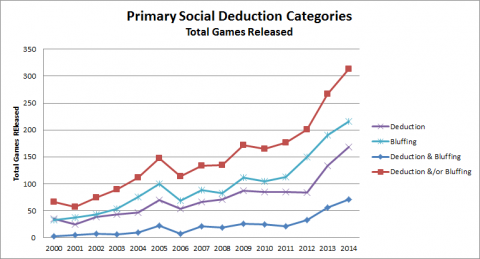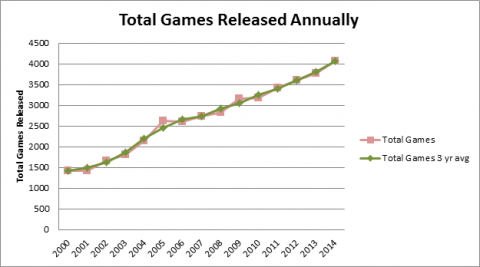Hobby Game Trends 2000-2014: Figures Part 2
Figures featured in the Hobby Game Trends 2000 - 2014 analysis. This is an extensive collection of graphs and charts (60 in all). Some are probably self-explanatory, but the assumptions and criteria are helpful for context, and the full analysis report necessary for interpretation.
This collection is broken into 2 galleries of 30 images each, purely for download considerations.






